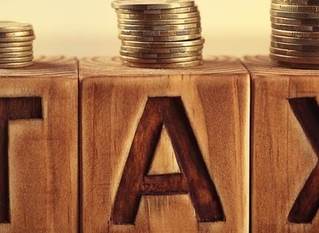Advice on taxing matters
The majority of people entering franchising come from an employed background, and as such many of the requirements that are placed on business owners are new to them. The obligations differ depending on the business structure chosen. Perhaps the structure with the least obligations is a sole trade. As a sole trader, you are required to maintain proper books and records, and to file your self-assessment tax return annually by 31 January of each year.
Partners in a partnership or Limited Liability Partnership (LLP) also have to prepare selfassessment tax returns. The partnership itself, however, is also required to prepare a partnership tax return, which discloses the profit shares due to each partner. There is no legal requirement to have a partnership or LLP members agreement; however I would strongly suggest that all franchisees looking to set up a partnership or an LLP take professional advice in relation to whether an agreement is required, and the specific matters that should be addressed within the agreement.
Limited Companies and Limited Liability Partnerships have more administrative requirements than unincorporated businesses, due to the requirements of the Companies Act and the Limited Liability Partnerships Act. They are required to file various documents at Companies House (whose website carries an extensive glossary, defining terms such as Limited Liability), including notifications of changes to officers, annual accounts and annual returns. These entities are also required to have a registered office, at which the statutory documents of the company or LLP must be available for inspection.
Directors, or designated members of LLPs, have a variety of legal requirements in respect of their conduct and duties in relation to the company or LLP. Regardless of business type, if your turnover exceeds the VAT registration threshold (or your franchise agreement requires it) you will have to also submit VAT returns, which are usually prepared on a quarterly basis.
There are a number of decisions that should be made around VAT, which might save you money if you are a smaller trader, such as whether to register for the Flat Rate Scheme. If your VAT taxable turnover is less than £150,000, you could simplify your VAT accounting by calculating your VAT payments as a percentage of your total VAT-inclusive turnover.
Although you cannot reclaim VAT on purchases – it is taken into account in calculating the flat rate percentage – the Flat Rate Scheme can reduce the time that you need to spend on accounting for and working out your VAT. Even though you still need to show a VAT amount on each sales invoice, you don’t need to record how much VAT you charge on every sale in your accounts.
Nor do you need to record the VAT you pay on every purchase. If you are newly VAT-registered business you can reduce your flat rate by one per cent until the day before the first anniversary of your VAT registration. As a VAT-registered business, you will need to ensure that you comply with the VAT rules, particularly in respect of the VAT invoice requirements when considering your administrative burden. See www.hmrc.gov.uk for a full explanation of the Flat Rate Scheme.
There are a number of decisions that should be made around VAT, which might save you money if you are a smaller trader, such as whether to register for the Flat Rate Scheme. If your VAT taxable turnover is less than £150,000, you could simplify your VAT accounting by calculating your VAT payments as a percentage of your total VAT-inclusive turnover. Although you cannot reclaim VAT on purchases – it is taken into account in calculating the flat rate percentage – the Flat Rate Scheme can reduce the time that you need to spend on accounting for and working out your VAT.
Even though you still need to show a VAT amount on each sales invoice, you don’t need to record how much VAT you charge on every sale in your accounts. Nor do you need to record the VAT you pay on every purchase. If you are newly VAT-registered business you can reduce your flat rate by one per cent until the day before the first anniversary of your VAT registration. As a VAT-registered business, you will need to ensure that you comply with the VAT rules, particularly in respect of the VAT invoice requirements when considering your administrative burden.
See www.hmrc.gov.uk for a full explanation of the Flat Rate Scheme.
If you decide to employ staff members, you will also be required to perform payroll calculations for your staff, and to submit any due payments to HM Revenue & Customs on a regular basis. You will also be expected to prepare year-end forms for both your staff members and the tax office. There may also be P11D forms required, if you provide staff members or directors with any benefits.
You may also be interested in...





